Something in the Belly by Deena Metzger
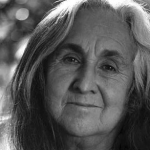
I wanted to have a poem and I was pregnant. I was very thin. As if I’d lived on air. A poet must be able to live on air, but a mother must not attempt it. My mother wanted me to buy a set of matching pots, Wearever aluminum, like the ones she had. They were heavy and had well fitting lids so my suppers wouldn’t burn. My husband wanted me to give dinner parties. John F. Kennedy was running for office.
I sensed danger. Kennedy wasn’t against the Bomb or for nuclear disarmament. I joined SANE at its inception. Also Concerned Scientists. I spoke with Linus Pauling and encouraged my husband to help his partner organize Physicians for Social Responsibility.
There was a baby in my belly. I wanted to write poems. I had a crazy idea that a woman could write a real novel, the kind that shook the world. I hallucinated that a woman could be a poet, but she would have to be free. I couldn’t imagine that freedom for myself even though I could see it in Isla Negra when I followed Pablo Neruda. I could see it in the way he walked. Even if he were walking inside a dictatorship, among guns, soldiers and spies, there was nothing between him and his vision. Anything he saw, he was able to take into himself–there was no sight, no image, no vision to which he didn’t feel entitled. In his heart, everything–everything–belonged to him. Pablo Neruda was–more than anything–a poet, and so he was an entitled man.
I was a woman and entitled to nothing. I had nothing except a husband, a rented house, a set of pots, living room furniture, a frenzy of obligations, credit cards, anxious relatives, too many acquaintances, a gift of future diaper service, two telephones, no time to read, a plastic wrapped cookbook of recipes gleaned from the pages of the New York Times, and a hunger, a terrible hunger for the unimaginable, unlimited freedom of being a poet, and a baby in my belly.
I would have called Pablo long distance if I had the courage, if I had the ability to speak Spanish fluently, if we had ever talked about real things. But, what would a man know about a baby in the belly? And what did it matter if there were to be one poet more or less in the world when so many in his country were dying?
I woke up one morning and thought–I can’t have this child. My husband said, “You’ll have to get a job after it’s born so we can buy a house. You’ll need an advanced degree so you can do something.” I thought, I can’t. I have to write poems. My mother found a crib. Someone painted it white. A friend sent a pastel mobile with tame wood animals. I thought about blue curtains, making bedspreads, and abortions.
Pablo was silent. He was walking so far from me, I couldn’t hear him. My husband objected to donating more free medical care to the Black Panthers. I tried to make dolmades from scratch and located grape leaves preserved in brine at the Boys’ Market twenty miles away. I organized a write-in campaign for peace to challenge JFK. My husband thought it would be nice to have teatime with the children and romantic dinners by ourselves. The new formula bottles lined up on the sink like tiny bombs. The U.S. was pursuing over ground testing; I was afraid the radiation would cross the milk barrier. I had a poem in me howling for real life but no language to write in. The fog came in thick, flapping about my feet like blankets unraveling. I became afraid to have a daughter.
I called Pablo Neruda in the middle of the night as he walked underwater by Isla Negra. He moved like a dream porpoise. He seemed pregnant with words. They came out of his penis in long miraculous strings. The sea creatures quivered with joy. I said, “Pablo, I want to know how to bear the child in my belly onto this bed of uranium and I want to know if a woman can a be a poet.” He was large as a whale. He drank the sea and spouted it in glistening odes, black and shiny. I said, “I can’t have this child,” and he laughed as if he had never done anything but carry and birth children.
Read Poem I sensed danger. Kennedy wasn’t against the Bomb or for nuclear disarmament. I joined SANE at its inception. Also Concerned Scientists. I spoke with Linus Pauling and encouraged my husband to help his partner organize Physicians for Social Responsibility.
There was a baby in my belly. I wanted to write poems. I had a crazy idea that a woman could write a real novel, the kind that shook the world. I hallucinated that a woman could be a poet, but she would have to be free. I couldn’t imagine that freedom for myself even though I could see it in Isla Negra when I followed Pablo Neruda. I could see it in the way he walked. Even if he were walking inside a dictatorship, among guns, soldiers and spies, there was nothing between him and his vision. Anything he saw, he was able to take into himself–there was no sight, no image, no vision to which he didn’t feel entitled. In his heart, everything–everything–belonged to him. Pablo Neruda was–more than anything–a poet, and so he was an entitled man.
I was a woman and entitled to nothing. I had nothing except a husband, a rented house, a set of pots, living room furniture, a frenzy of obligations, credit cards, anxious relatives, too many acquaintances, a gift of future diaper service, two telephones, no time to read, a plastic wrapped cookbook of recipes gleaned from the pages of the New York Times, and a hunger, a terrible hunger for the unimaginable, unlimited freedom of being a poet, and a baby in my belly.
I would have called Pablo long distance if I had the courage, if I had the ability to speak Spanish fluently, if we had ever talked about real things. But, what would a man know about a baby in the belly? And what did it matter if there were to be one poet more or less in the world when so many in his country were dying?
I woke up one morning and thought–I can’t have this child. My husband said, “You’ll have to get a job after it’s born so we can buy a house. You’ll need an advanced degree so you can do something.” I thought, I can’t. I have to write poems. My mother found a crib. Someone painted it white. A friend sent a pastel mobile with tame wood animals. I thought about blue curtains, making bedspreads, and abortions.
Pablo was silent. He was walking so far from me, I couldn’t hear him. My husband objected to donating more free medical care to the Black Panthers. I tried to make dolmades from scratch and located grape leaves preserved in brine at the Boys’ Market twenty miles away. I organized a write-in campaign for peace to challenge JFK. My husband thought it would be nice to have teatime with the children and romantic dinners by ourselves. The new formula bottles lined up on the sink like tiny bombs. The U.S. was pursuing over ground testing; I was afraid the radiation would cross the milk barrier. I had a poem in me howling for real life but no language to write in. The fog came in thick, flapping about my feet like blankets unraveling. I became afraid to have a daughter.
I called Pablo Neruda in the middle of the night as he walked underwater by Isla Negra. He moved like a dream porpoise. He seemed pregnant with words. They came out of his penis in long miraculous strings. The sea creatures quivered with joy. I said, “Pablo, I want to know how to bear the child in my belly onto this bed of uranium and I want to know if a woman can a be a poet.” He was large as a whale. He drank the sea and spouted it in glistening odes, black and shiny. I said, “I can’t have this child,” and he laughed as if he had never done anything but carry and birth children.
0
Purple Anemones by D. H. Lawrence

Who gave us flowers?
Heaven? The white God?
Nonsense!
Up out of hell,
From Hades;
Infernal Dis!
Jesus the god of flowers—?
Not he.
Read Poem Heaven? The white God?
Nonsense!
Up out of hell,
From Hades;
Infernal Dis!
Jesus the god of flowers—?
Not he.
0
The Difficulty with a Tree by Russell Edson

A woman was fighting a tree. The tree had come to rage at the woman’s attack, breaking free from its earth it waddled at her with its great root feet.
Goddamn these sentiencies, roared the tree with birds shrieking in its branches.
Look out, you’ll fall on me, you bastard, screamed the woman as she hit at the tree.
The tree whisked and whisked with its leafy branches.
The woman kicked and bit screaming, kill me kill me or I’ll kill you!
Her husband seeing the commotion came running crying, what tree has lost patience?
The ax the ax, damnfool, the ax, she screamed.
Oh no, roared the tree dragging its long roots rhythmically limping like a sea lion towards her husband.
But oughtn’t we to talk about this? cried her husband.
But oughtn’t we to talk about this, mimicked his wife.
But what is this all about? he cried.
When you see me killing something you should reason that it will want to kill me back, she screamed.
But before her husband could decide what next action to perform the tree had killed both the wife and her husband.
Read Poem Goddamn these sentiencies, roared the tree with birds shrieking in its branches.
Look out, you’ll fall on me, you bastard, screamed the woman as she hit at the tree.
The tree whisked and whisked with its leafy branches.
The woman kicked and bit screaming, kill me kill me or I’ll kill you!
Her husband seeing the commotion came running crying, what tree has lost patience?
The ax the ax, damnfool, the ax, she screamed.
Oh no, roared the tree dragging its long roots rhythmically limping like a sea lion towards her husband.
But oughtn’t we to talk about this? cried her husband.
But oughtn’t we to talk about this, mimicked his wife.
But what is this all about? he cried.
When you see me killing something you should reason that it will want to kill me back, she screamed.
But before her husband could decide what next action to perform the tree had killed both the wife and her husband.
0
Fruit-gathering LV by Rabindranath Tagore
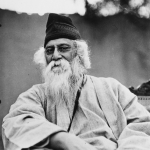
Tulsidas, the poet, was wandering, deep in thought, by the Ganges, in that lonely spot where they burn their dead.
He found a woman sitting at the feet of the corpse of her dead husband, gaily dressed as for a wedding.
She rose as she saw him, bowed to him, and said, "Permit me, Master, with your blessing, to follow my husband to heaven."
"Why such hurry, my daughter?" asked Tulsidas. "Is not this earth also His who made heaven?"
"For heaven I do not long," said the woman. "I want my husband."
Tulsidas smiled and said to her, "Go back to your home, my child. Before the month is over you will find your husband."
The woman went back with glad hope. Tulsidas came to her every day and gave her high thoughts to think, till her heart was filled to the brim with divine love.
When the month was scarcely over, her neighbours came to her, asking, "Woman, have you found your husband?"
The widow smiled and said, "I have."
Eagerly they asked, "Where is he?"
"In my heart is my lord, one with me," said the woman.
0
Paradise Lost: Book 9 (1674 version) by John Milton

NO more of talk where God or Angel Guest
With Man, as with his Friend, familiar us'd
To sit indulgent, and with him partake
Rural repast, permitting him the while
Venial discourse unblam'd: I now must change
Those Notes to Tragic; foul distrust, and breach
Disloyal on the part of Man, revolt,
And disobedience: On the part of Heav'n
Read Poem With Man, as with his Friend, familiar us'd
To sit indulgent, and with him partake
Rural repast, permitting him the while
Venial discourse unblam'd: I now must change
Those Notes to Tragic; foul distrust, and breach
Disloyal on the part of Man, revolt,
And disobedience: On the part of Heav'n
0
The Third Hour of the Night by Frank Bidart

When the eye
When the edgeless screen receiving
light from the edgeless universe
When the eye first
When the edgeless screen facing
outward as if hypnotized by the edgeless universe
When the eye first saw that it
Hungry for more light
Read Poem When the edgeless screen receiving
light from the edgeless universe
When the eye first
When the edgeless screen facing
outward as if hypnotized by the edgeless universe
When the eye first saw that it
Hungry for more light
0
Dedication for a Plot of Ground by William Carlos Williams
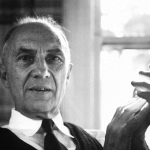
This plot of ground
facing the waters of this inlet
is dedicated to the living presence of
Emily Dickinson Wellcome
who was born in England; married;
lost her husband and with
her five year old son
sailed for New York in a two-master;
Read Poem facing the waters of this inlet
is dedicated to the living presence of
Emily Dickinson Wellcome
who was born in England; married;
lost her husband and with
her five year old son
sailed for New York in a two-master;
0
from The Book of the Dead: Absalom by Muriel Rukeyser

I first discovered what was killing these men.
I had three sons who worked with their father in the tunnel:
Cecil, aged 23, Owen, aged 21, Shirley, aged 17.
They used to work in a coal mine, not steady work
for the mines were not going much of the time.
A power Co. foreman learned that we made home brew,
he formed a habit of dropping in evenings to drink,
persuading the boys and my husband —
Read Poem I had three sons who worked with their father in the tunnel:
Cecil, aged 23, Owen, aged 21, Shirley, aged 17.
They used to work in a coal mine, not steady work
for the mines were not going much of the time.
A power Co. foreman learned that we made home brew,
he formed a habit of dropping in evenings to drink,
persuading the boys and my husband —
0
The Well of St. Keyne by Robert Southey

A Well there is in the west country,
And a clearer one never was seen;
There is not a wife in the west country
But has heard of the Well of St. Keyne.
An oak and an elm-tree stand beside,
And behind doth an ash-tree grow,
And a willow from the bank above
Droops to the water below.
A traveller came to the Well of St. Keyne;
Joyfully he drew nigh,
For from the cock-crow he had been travelling,
And there was not a cloud in the sky.
0
Paradise Lost: Book 10 (1674 version) by John Milton

MEanwhile the hainous and despightfull act
Of Satan done in Paradise, and how
Hee in the Serpent, had perverted Eve,
Her Husband shee, to taste the fatall fruit,
Was known in Heav'n; for what can scape the Eye
Of God All-seeing, or deceave his Heart
Omniscient, who in all things wise and just,
Hinder'd not Satan to attempt the minde
Read Poem Of Satan done in Paradise, and how
Hee in the Serpent, had perverted Eve,
Her Husband shee, to taste the fatall fruit,
Was known in Heav'n; for what can scape the Eye
Of God All-seeing, or deceave his Heart
Omniscient, who in all things wise and just,
Hinder'd not Satan to attempt the minde
0
To her Sister Mistress A. B. by Isabella Whitney

Because I to my brethern wrote
and to my sisters two:
Good sister Anne, you this might wote,
if so I should not do
To you, or ere I parted hence,
You vainly had bestowed expence.
Yet is it not for that I write,
for nature did you bind
To do me good, and to requite
hath nature me inclined:
Wherefore good sister take in gree
These simple lines that come from me.
Wherein I wish you Nestor's days,
Read Poem and to my sisters two:
Good sister Anne, you this might wote,
if so I should not do
To you, or ere I parted hence,
You vainly had bestowed expence.
Yet is it not for that I write,
for nature did you bind
To do me good, and to requite
hath nature me inclined:
Wherefore good sister take in gree
These simple lines that come from me.
Wherein I wish you Nestor's days,
0
The Unfaithful Housewife by Federico García Lorca
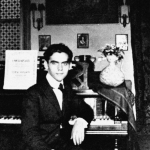
For Mary Peace Then I led her to the river
certain she was still a virgin
0
A Time of Bees by Mona Van Duyn
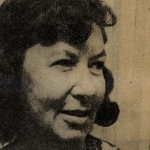
Love is never strong enough to find the words befitting it.
CAMUS All day my husband pounds on the upstairs porch.
Screeches and grunts of wood as the wall is opened
Read Poem CAMUS All day my husband pounds on the upstairs porch.
Screeches and grunts of wood as the wall is opened
0
Another Insane Devotion by Gerald Stern
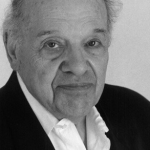
This was gruesome—fighting over a ham sandwich
with one of the tiny cats of Rome, he leaped
on my arm and half hung on to the food and half
hung on to my shirt and coat. I tore it apart
and let him have his portion, I think I lifted him
down, sandwich and all, on the sidewalk and sat
with my own sandwich beside him, maybe I petted
his bony head and felt him shiver. I have
Read Poem with one of the tiny cats of Rome, he leaped
on my arm and half hung on to the food and half
hung on to my shirt and coat. I tore it apart
and let him have his portion, I think I lifted him
down, sandwich and all, on the sidewalk and sat
with my own sandwich beside him, maybe I petted
his bony head and felt him shiver. I have
0
The Deserted Village by Oliver Goldsmith

Sweet Auburn, loveliest village of the plain,
Where health and plenty cheared the labouring swain,
Where smiling spring its earliest visit paid,
And parting summer's lingering blooms delayed,
Dear lovely bowers of innocence and ease,
Seats of my youth, when every sport could please,
How often have I loitered o'er thy green,
Where humble happiness endeared each scene!
Read Poem Where health and plenty cheared the labouring swain,
Where smiling spring its earliest visit paid,
And parting summer's lingering blooms delayed,
Dear lovely bowers of innocence and ease,
Seats of my youth, when every sport could please,
How often have I loitered o'er thy green,
Where humble happiness endeared each scene!
0
A Deserter by Charles Reznikoff

Their new landlord was a handsome man. On his rounds to
collect rent she became friendly.
Finally, she asked him in to have a cup of tea. After that he
came often.
Once his mouth jerked, and turning, she saw her husband in
the doorway.
She thought, One of the neighbors must have told him.
She smiled and opened her mouth to speak, but could say
Read Poem collect rent she became friendly.
Finally, she asked him in to have a cup of tea. After that he
came often.
Once his mouth jerked, and turning, she saw her husband in
the doorway.
She thought, One of the neighbors must have told him.
She smiled and opened her mouth to speak, but could say
0
Aeneid, II, 692 - end by Virgil

As he spoke we could hear, ever more loudly, the noise
Of the burning fires; the flood of flames was coming
Nearer and nearer. “My father, let me take you
Upon my shoulders and carry you with me.
The burden will be easy. Whatever happens,
You and I will experience it together,
Peril or safety, whichever it will be.
Little Iülus will come along beside me.
My wife will follow behind us. And you, my servants,
Listen to what I say: just as you leave
The limits of the city there is a mound,
And the vestiges of a deserted temple of Ceres,
And a cypress tree that has been preserved alive
For many years by the piety of our fathers.
We will all meet there, though perhaps by different ways
Read Poem Of the burning fires; the flood of flames was coming
Nearer and nearer. “My father, let me take you
Upon my shoulders and carry you with me.
The burden will be easy. Whatever happens,
You and I will experience it together,
Peril or safety, whichever it will be.
Little Iülus will come along beside me.
My wife will follow behind us. And you, my servants,
Listen to what I say: just as you leave
The limits of the city there is a mound,
And the vestiges of a deserted temple of Ceres,
And a cypress tree that has been preserved alive
For many years by the piety of our fathers.
We will all meet there, though perhaps by different ways
0
The Burial of the Rev. George Gilfillan by Knight of the White Elephant of Burmah William McGonagall
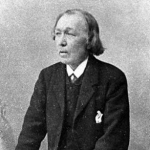
On the Gilfillan burial day,
In the Hill o’ Balgay,
It was a most solemn sight to see,
Not fewer than thirty thousand people assembled in Dundee,
All watching the funeral procession of Gilfillan that day,
That death had suddenly taken away,
And was going to be buried in the Hill o’ Balgay.
There were about three thousand people in the procession alone,
And many were shedding tears, and several did moan,
And their bosoms heaved with pain,
Because they knew they would never look upon his like again.
There could not be fewer than fifty carriages in the procession that day,
And gentlemen in some of them that had come from far away,
Read Poem In the Hill o’ Balgay,
It was a most solemn sight to see,
Not fewer than thirty thousand people assembled in Dundee,
All watching the funeral procession of Gilfillan that day,
That death had suddenly taken away,
And was going to be buried in the Hill o’ Balgay.
There were about three thousand people in the procession alone,
And many were shedding tears, and several did moan,
And their bosoms heaved with pain,
Because they knew they would never look upon his like again.
There could not be fewer than fifty carriages in the procession that day,
And gentlemen in some of them that had come from far away,
0
Domestic Scenes by Charles Reznikoff

1
It was nearly daylight when she gave birth to the child,
lying on a quilt
he had doubled up for her.
He put the child on his left arm
and took it out of the room,
and she could hear the splashing water.
When he came back
Read Poem It was nearly daylight when she gave birth to the child,
lying on a quilt
he had doubled up for her.
He put the child on his left arm
and took it out of the room,
and she could hear the splashing water.
When he came back
0
Maximus, to Gloucester: Letter 2 by Charles Olson

. . . . . tell you? ha! who
can tell another how
to manage the swimming?
he was right: people
don’t change. They only stand more
revealed. I,
likewise
1
Read Poem can tell another how
to manage the swimming?
he was right: people
don’t change. They only stand more
revealed. I,
likewise
1
0